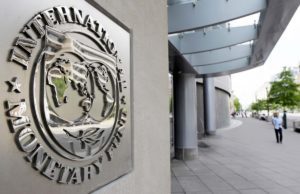
The National Bank of Ukraine (NBU) counts on continuation of cooperation of Ukraine with the International Monetary Fund (IMF) after the expiration of the currency Stand-By Arrangement (SBA), according to an inflation report for January 2019 posted on the website of the central bank.
The document, in particular, has the key assumptions for the macroeconomic forecast of the NBU for 2019-2021, including payments to the public sector from donors in 2019-2021 ($6.5 billion from the IMF, $1.6 billion each from the EU and the World Bank), along with the placement of government external loan bonds for $8.5 billion, will allow refinancing most of the payments on external obligations.
As reported, the IMF Executive Board, following a meeting on December 19, 2018, approved a new program of cooperation with Ukraine under the stand-by arrangement. The amount of the 14-month program is equivalent to SDR 2.8 billion, or about $3.9 billion. Some SDR 1 billion (about $1.4 billion) was provided immediately, while the remaining funds will be provided based on the results of the program reviews in May and September 2019. The NBU thus plans to raise some $4 billion from the IMF in 2020-2021.
In addition, at the end of January 2019, the NBU said that it had laid out macroeconomic forecasts for the country to place eurobonds worth $2 billion in 2019. Thus, the National Bank expects an increase in sovereign eurobonds in subsequent years to more than $3 billion.
As reported, Ukraine in October 2018 placed two tranches of eurobonds: $750 million five-year bonds and $1.25 billion 10-year bonds.
The yield on the five-year bonds was 9% per annum, and for the 10-year bonds it is 9.75%.
BNP Paribas, Citi, Goldman Sachs and J.P. Morgan acted as organizers of the issue.
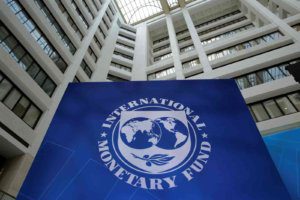
The International Monetary Fund (IMF) Resident Representative in Ukraine Goesta Ljungman has reported on the upcoming visit to Kyiv of experts of the fund to discuss the 2019 draft budget, the adoption of which is a condition for providing Ukraine with funding for the new stand by program. According to Ljungman, the experts will stay in Ukraine on November 4-9.
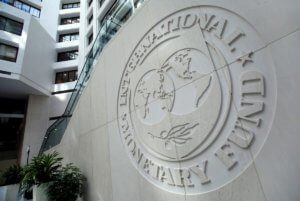
The amount of the first tranche under the new Stand-By Arrangement (SBA) with the International Monetary Fund (IMF) could be $1.5-1.9 billion, First Deputy Governor of the National Bank of Ukraine (NBU) Kateryna Rozhkova has said. “We recently had a monetary briefing where the NBU Governor Yakiv Smolii said that the tranche could be received by the end of this year. As for the sum [of the first tranche], I think that it would be some $1.5-1.9 billion,” she told reporters at the BEPSinUA forum in Kyiv on Thursday.
As reported, the International Monetary Fund (IMF) staff and Ukraine have reached an agreement on economic policies for a new 14-month Stand-By Arrangement (SBA), which will replace the arrangement under the Extended Fund Facility (EFF), approved in March 2015 and set to expire in March 2019.
The agreement is subject to approval by the fund’s management and approval by its board of directors. The board’s meeting is expected to take place at the end of the year after the Verkhovna Rada adopts the national budget for 2019 in accordance with the recommendations of the IMF and the increase in gas and heating tariffs for households, reflecting market trends while maintaining support for low-income consumers.
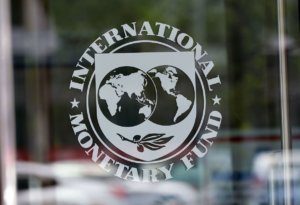
Governor of the National Bank of Ukraine (NBU) Yakiv Smolii does not rule out that a first tranche under the new Stand-By Arrangement (SBA) from the International Monetary Fund (IMF) could arrive this year. “For the time being we cannot talk about exact deadlines, since the decision will be made by the IMF board. We expect it to take place in December, and we can expect to receive a tranche this year,” he said at a monetary briefing in Kyiv.
As reported, the International Monetary Fund (IMF) staff and Ukraine have reached an agreement on economic policies for a new 14-month Stand-By Arrangement (SBA), which will replace the arrangement under the Extended Fund Facility (EFF), approved in March 2015 and set to expire in March 2019.
The agreement is subject to approval by the fund’s management and approval by its board of directors. The board’s meeting is expected to take place at the end of the year after the Verkhovna Rada adopts the national budget for 2019 in accordance with the recommendations of the IMF and the increase in gas and heating tariffs for households, reflecting market trends while maintaining support for low-income consumers.
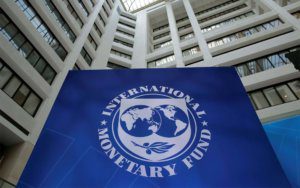
The International Monetary Fund (IMF) staff and the Ukrainian authorities have reached agreement on economic policies for a new 14-month Stand-By Arrangement (SBA), which will replace the arrangement under the Extended Fund Facility (EFF), approved in March 2015 and set to expire in March 2020. “The new SBA, with a requested access of SDR 2.8 billion (equivalent to $3.9 billion), will provide an anchor for the authorities’ economic policies during 2019,” the IMF said in a statement on Friday.
According to the statement, the agreement is subject to IMF management approval and approval by the IMF Executive Board. Board consideration is expected later in the year following parliamentary approval of a government budget for 2019 consistent with IMF staff recommendations and an increase in household gas and heating tariffs to reflect market developments while continuing to protect low-income households.
The IMF says that building on progress made under the EFF arrangement in reducing macro-economic vulnerabilities, the new agreement will focus in particular on continuing with fiscal consolidation and reducing inflation, as well as reforms to strengthen tax administration, the financial sector and the energy sector.
“The agreement reached today reflects the IMF’s commitment to continue to help Ukraine achieve stronger, sustainable, and inclusive economic growth,” the IMF said.
The Ukrainian authorities’ steadfast and effective implementation will be critical for the program to achieve its objectives, it added. According to the IMF, the new program has been developed in close coordination with the World Bank and the European Union, who have parallel operations to support Ukraine. As reported, the four-year-EFF program worth SDR 12.348 billion (about $17.46 billion at the current forex rate) was launched in March 2015 with a first disbursement of $5 billion. It originally suggested a quarterly review of the program, the allocation of three more tranches worth SDR 1.18 billion each in 2015 and a reduction in quarterly disbursements in 2016-2018 to SDR 0.44 billion ($0.61 billion).
Under the ongoing program, Ukraine has managed to receive a second tranche worth $1.7 billion early in August 2015 with a little delay, which was followed by a long break as Ukraine had failed to meet a number of conditions, which was aggravated by the political crisis and government reshuffles.
Talks on further financing resumed after the appointment of a new Cabinet of Ministers headed by Volodymyr Groysman in April 2016. However, the IMF decided to issue a third disbursement worth $1 billion only in the middle of September 2016 and a fourth one on April 3, 2017.
Since July 2017 Ukraine has been in a complicated negotiating process with the IMF on the gas issue. The IMF insists on raising the price of gas for the population, which, according to various estimates, may range from 30% to 60% due to rising prices in international markets, while the prime minister had previously pointed out the irrationality of such a sharp increase.
The Fund’s position is quite tough, as the government last year decided to raise gas prices that allowed Ukraine to receive a tranche from the IMF, but subsequently unilaterally refused to implement it. Only on Friday, October 19, the government decided to raise gas prices for the population by 23% from November 1, but their new level is still significantly lower than the prices for industry.
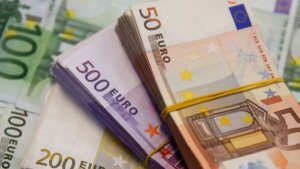
Ukraine has fulfilled a major part of conditions for receiving the first tranche of macro-financial assistance (MFA) from the European Union in the amount of EUR 500 million, acting Finance Minister of Ukraine Oksana Markarova has said.
“Most of the conditions for the first tranche have already been fulfilled. Some of them are in the process of implementation at the final stage. I think getting the first tranche is realistic enough,” she told Interfax-Ukraine on the sidelines of the 15th YES Conference organized by the Victor Pinchuk Foundation in Kyiv.
“The question is about reaching agreements with the IMF, which are also important for the MFA. We are working on this too, as soon as there is, I hope, a positive solution, then we will be able to [to get the MFA],” Markarova said.
Commenting on the specific conditions for the first tranche of the MFA, she said that the Finance Ministry had already approved seven general tax consultations since July.
“After we approved amendments to the Tax Code that enable the Finance Ministry to render these consultations, we did not actively use this tool. It’s my personal priority,” Markarova said.
She said that some legislative requirements are differently interpreted by tax offices in regions and courts, and the role of these generalized consultations is to provide equal interpretation, therefore, the ministry will use this tool.
Asked about the fulfillment of the requirement to ensure effective verification of information on beneficiaries in the public register, Markarova said that this requirement has already been practically fulfilled, as it is prescribed.
“This is a matter of changing the legal acts. There is already a clear understanding of what needs to be changed in the regulatory framework to make this possible. I think we will fulfill this condition,” the acting minister said, adding that there is no need for legislative amendments.
At the same time, she said that, in general, the verification of beneficiaries is a very complex issue. Markarova said that there is no country that can show how it works, in particular, this is a new experience for European partners of Ukraine.
The acting minister also said that the draft national budget for 2019 announced all the required funds for the work of the High Anti-Corruption Court.